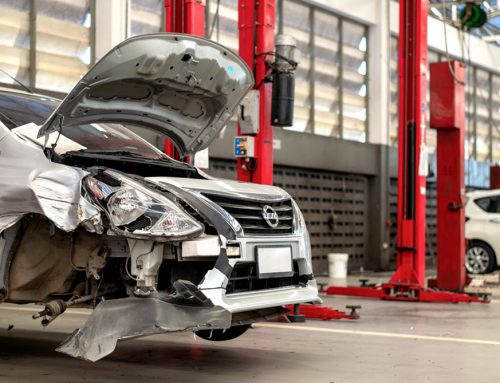Since COVID, a lot has changed in the collision repair industry. The pandemic’s impact on supply chains is still being felt, and war and the economy are adding to it. The market is changing, technology is evolving, and various players in the industry are adopting new strategies.
Even customers are changing their behaviour. While referrals are still going strong, if not growing, the direction of traffic seems set to shift.
What about you and your shop? Are you able to stay ahead, today and tomorrow?
A market influencer shared this figure with me: 30% of insured customers no longer report claims directly to their insurance company. I’m not saying this is always the case across Canada, but it seemed somewhat tangible in Ontario.
Customers Avoiding Claims: Short-Lived or Long-Lasting Trend?
Why do people not report accidents to their insurer? Because they want to avoid paying high premiums. In this case, they have two options: either they don’t repair the car, which means the sale is lost, or they shop around, which means they bypass your referral from the insurer. In the latter scenario, your marketing, reputation and pricing strategy will be key in determining if this customer chooses your shop for the repairs.
The question you need to ask yourself is: do you want to attract this type of customer?
Several factors can influence your decision. Do you have a large volume of such customers in your area? Do you have other options, such as signing up new insurance partners, dealerships, fleet owners or others?
So, what do you think? Is this a long-lasting or short-lived trend?
The Unstoppable Progression of Certifications and Their Impact on Referrals
Certifications are becoming more and more common. Choosing to get one or not remains a business decision. But be aware that your competitors are most likely in the process of obtaining one.
Certifications used to be important for certain makes of vehicles. Now, they have a direct impact on your referrals from insurers. If you’re part of a network, there’s a strong chance that the network prefers its members to be certified, as this improves its position in the market.
In a competitive geographic market, a collision centre looking to partner up with insurance companies without having any certifications runs the risk of being at the back of the pack, getting less work and less money for it in proportion.
If your sales mix includes insurers and dealers, certifications are a safe bet for the future. Organizing around such a project allows your shop to grow and more easily undertake initiatives for the continuous improvement of your performance and operations.
If you are certified, remember that ProgiSync can shine a spotlight on your certifications like a beacon in the night. This feature has been available since last year.
Consolidation or Modification of Partnerships in Your Market
Picture this scenario: insurers, including three major ones and a few smaller ones, account for 80% of your sales mix. And one insurer takes up a strong portion of this 80%. The remaining 20% of your mix includes other partners or customers without insurance.
Most of your competitors have established relationships with the major dealers. Suddenly, your biggest insurance partner decides to concentrate its volume on a single local supplier. The result: just like that, 30-40% of your sales volume is gone.
This is not science fiction. It can happen and it’s completely legitimate. In this case, beyond the loss or deficit, what’s your strategy to recover this lost percentage?
Here’s another scenario: you’re in Toronto, one of your dealership partners, accounting for 60% of your sales, sells its facilities, which get turned into condo buildings. Competition is at an all-time high, and other dealers are either too far away or already in partnerships.
What’s your game plan? Again, this is not fiction. We’ve seen some striking examples of this in 2024.
Your Plan
Many parameters will determine your plan, such as your location, your affiliation to a network, the potential partners in your area, your certifications, your marketing proficiency, your reputation, your technical capacity to take on new types of repairs while remaining profitable, the supply and demand in your area, etc.
Your plan should reflect who you are, be well thought out and ready to execute. Think of a spy movie: the agent always keeps his passports and cash hidden somewhere in a slightly suspicious bag. That’s your plan. It must be actionable and ready to go in case of an emergency.
In the Meantime
If you’re worried because indicators in the market suggest that a partner might vanish or change its usual practices, or if you just want to be on the safe side rather than at risk, you can diversify your sales mix to soften the blow if such a situation arises.
This involves operational risks: introducing new partners and customers can create technical challenges for your team, making your employees temporarily less efficient. You have choices to make depending on what your goals are: prosperity, longevity, the sale of your establishment, succession, etc.
Being a business person means finding the right balance between risk and caution, to ensure maximum and constant performance. That’s quite the challenge.
Thankfully, there’s a solution available now to optimize your operations and improve your profitability in no time. This solution is ProgiPlanning.





